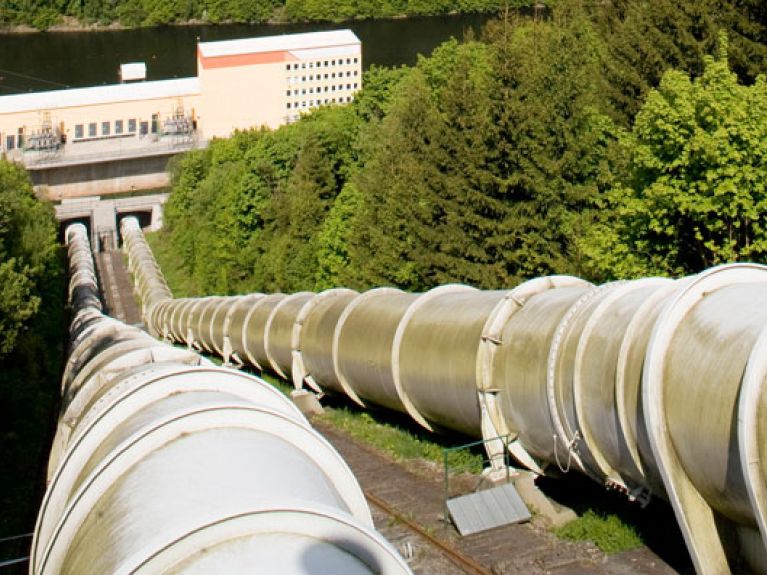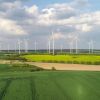Storing electricity in mines
Germany has set itself ambitious targets for the expansion of renewable energy sources. In our series we present projects that promote the practical implementation of the Energy Turnaround. deutschland.de “Energy Turnaround” series, part 7

The more wind and solar power is produced, the more important it becomes to find ways of storing the energy, as it is not produced constantly. One innovative idea has been dreamt up in the Ruhr region: Old mines could be converted into pumped storage hydropower stations that absorb the excess power and then release it when consumers need it.
German hard coal mining is nearing its end, and in 2018 the last of the mines in the state of North Rhine-Westphalia is scheduled to close down. Searching for ways of giving the mines a new lease of life, geology professor Ulrich Schreiber at the University of Duisburg-Essen (UDE) came up with the idea of an underground pumped storage hydropower station. The galleries of the mines, deep in the ground, are used as a reservoir for water: The excess electricity is then used to pump the water up to the surface, where it fills a “topside basin”. If the grid requires electricity, the water simply goes surging down pipes back into the depths – whereby there are turbines fitted into the pipes that generate the electricity.
There are several advantages to the plan. Unlike classic pumped storage hydropower stations, which tend to be located in the hills or mountains, nature does not get touched. Given a head of some 1,000 metres or more, you can store a relatively large amount of energy – enough to cover electricity supplies for a large city for several hours. And since the ambient temperature at 1,000 metres underground is 40-45°C, the heated water could also potentially be used for heating purposes.
However, various technical and legal issues need to be clarified before the underground storage system becomes a reality. The State of North Rhine-Westphalia is having the idea’s feasibility assessed by a team of experts – presumably taking the Prosper-Haniel mine nr. Bottrop as an example. The team includes members of the UDE, Ruhr University Bochum and the RAG mining company. What a stunning combination: A ‘backup system’ for renewable energy storage would arise where for decades fossil fuels were mined.

